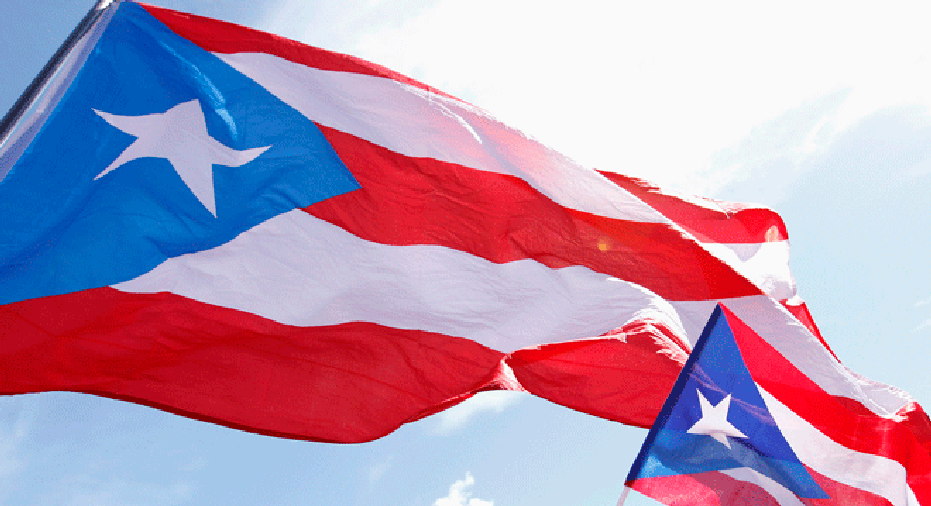Puerto Rico to Default on Guaranteed Debt

Puerto Rico will default on its constitutionally guaranteed debt for the first time Friday by failing to make most of some $1 billion in payments due, officials said on Friday.
The island's Government Development Bank said the territory faces an imminent cash crunch and that its cash balances have dropped to "dangerously low" levels. It didn't say how much bondholders would be paid or whether they would receive any payments at all.
"Even if the commonwealth were to devote every last penny" in its operating account to Friday's debt payments, "it would still owe holders of the public debt hundreds of millions of dollars," the GDB said in a statement.
The government said Friday that even after it employs certain emergency measures to delay other payments to suppliers, which it has done in the past to scrape together the cash to pay bondholders, the island could still run out of money in August or September.
President Barack Obama signed legislation Thursday to address the island's debt crisis. It doesn't provide any mechanism to avoid such a default. Instead, it gives the island a stay against creditor litigation.
The law also empowers a seven-member oversight board, appointed by Mr. Obama with the input of congressional leaders, to supervise a financial overhaul with the authority to initiate debt restructuring.
Puerto Rico's government for weeks has said that it would be unable to make debt payments, in part because it hasn't been setting aside reserves. Still, some analysts have said the island would find a way to make the most senior payments, repeating a pattern seen over the past year in which the island said it couldn't afford to pay debt but drew on reserves and took other emergency steps to make payments.
Nearly $2 billion in bond payments is due Friday, the majority of which are bonds protected by a constitutional lien on the island's revenues. The island has been in a recession for most of the past decade and has seen a large drop in its population as residents, who are U.S. citizens, leave for the mainland.
"The market has been waiting for this default for two years, but really it's been 15 years in the making," said Matt Fabian, partner at research firm Municipal Market Analytics. "These defaults now are essentially Puerto Rico impounding funds for working capital."
Mr. Fabian said the defaults "will weigh on market psychology regardless of how prepared people are."
Creditors have raised concerns that the federal legislation removes any urgency for the territory to continue good-faith efforts to make payments.
But other officials, including at the Treasury Department, have warned that the island lacked the resources to make the payments.
Without the legal stay in place before Friday to prevent a court from ordering payments to be made ahead of essential services, the island's debt crisis would have grown "much worse and might have been unsolvable," said Treasury Secretary Jacob Lew on Wednesday.
Write to Heather Gillers at heather.gillers@wsj.com and Nick Timiraos at nick.timiraos@wsj.com



















